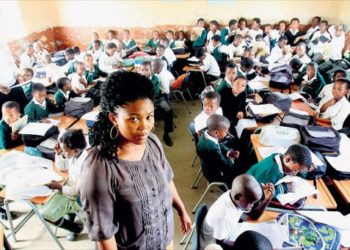“The right to quality education is, I believe, the perfect path to bridge the gap between different cultures and to reconcile various civilizations. Without such a right, the values of liberty, justice, and equality will have no meaning. Ignorance is by far the biggest danger and threat to humankind.” – Moza bint Nasser Sheikha
Moza bint Nasser, DBE is the consort of Sheikh Hamad bin Khalifa Al Thani, former Emir of the State of Qatar. Since 1995, Sheikha Moza has led education and social reforms in Qatar and has founded national and international development projects.
We can see where she fits in with the hopes of the UN’s Broadband Commission to use innovative partnerships and business models to assist the expansion of broadband networks and foster secured uptake and the development of digital skills in remote and rural areas to ensure widespread access to the benefits of broadband.
The Broadband Commission for Sustainable Development held its 2019 Spring Meeting in Menlo Park, United States of America, 28-29 April, under the theme “Shaping the future of broadband for sustainable development”. Representing the broadband industry, governments, academia, and United Nations agencies, the deputized Broadband Commissioners reviewed investment strategies and people-centred approaches. I sincerely hope that minorities or minority groups were represented.
The vision is the other half of 3.7 B online by 2020, but policymakers need to have the clout, and the willingness to collaborate with their neighbors, regardless of creed. With the best intentions in the world, unless the legal regulatory environment is created that fosters investment and creates financial opportunity for businesses in the education space, where broadband is a necessity to create access to the educational tools available, a lot of the lofty ideals will only be lip service.
The Internet is only one of the challenges to quality education
The more important part that we often forget is that the Internet creates connectivity and allows communications between human beings which is vital to every person’s education.
The ability to speak, to connect, make friends, share ideas and ideals, and explore the world with real people is crucial to everyone’s education. Take this away and education just becomes a set of dry facts with zero empathy and tolerance, both key ingredients for living together peacefully in this world.
Policy and one vision of inclusion
Educational organization hierarchy is often disconnected from what actually happens in local schools on the ground. This is typical of a centralized education system. Establishing communication between all the relevant stakeholders in the education space is crucial for the students to get the benefit at the end of the day.
The students are ultimately the most important part of this thought process, because they are the people who will become the leaders, and the workforce of tomorrow, and will shape the way the world functions.
As countries compete on the economic battlefield, each makes its own decisions regarding education based on outcomes it sees 20 to 30 years down the path.
There is a disconnect between government and business in educational thinking, and this is where policymakers can greatly influence the impact that education can have by actively engaging and including policies that encourage business to participate in the educational future of the country’s citizens.
This revolves around building the infrastructure necessary to engage with and allow students to access information needed to fulfil the UN’s goal.
“Creating an attractive environment for investment in digital infrastructure must be one of our top priorities in order to achieve our goal of connecting the remaining half of the global population,” said Houlin Zhao, ITU Secretary-General. “Future networks like 5G and other emerging technologies are set to play a pivotal role in the digital economy. Our task is to ensure that they can benefit everyone, everywhere.“
Inclusion should also focus on marginalized groups
In many parts of the world, girls have far more limited access to education than boys do, for many economic, social and cultural reasons.
UNESCO estimates that more than 14 million girls of primary school age, over half of which live in sub-Saharan Africa will never go into a classroom. Inclusion should also focus on marginalized groups within society, such as ethnic minorities, poverty-stricken students or geographically disadvantaged students.
Policy makers and business can create a global workplace that, linked with an Internet learning environment can alleviate the disconnect and create this inclusion.
If we honestly believe in inclusion for everybody as an ideal and want to provide an equitable quality education that is a big win for mankind, we need to change current policy.









Leave a Reply